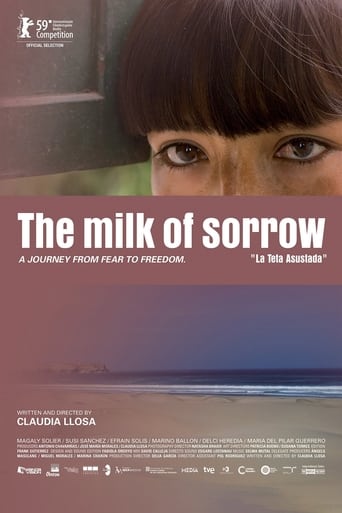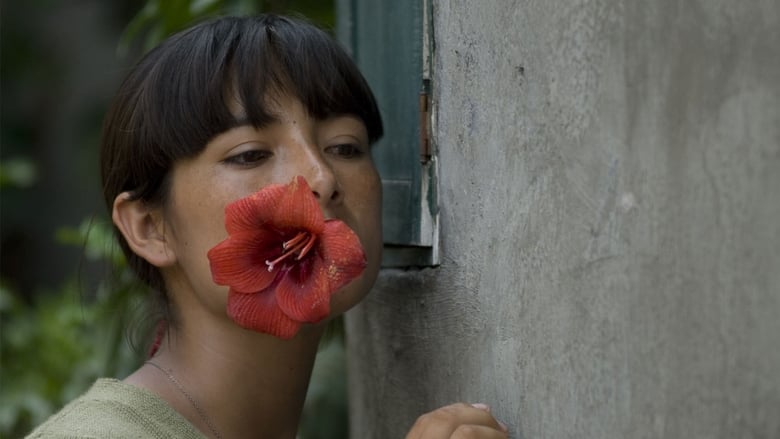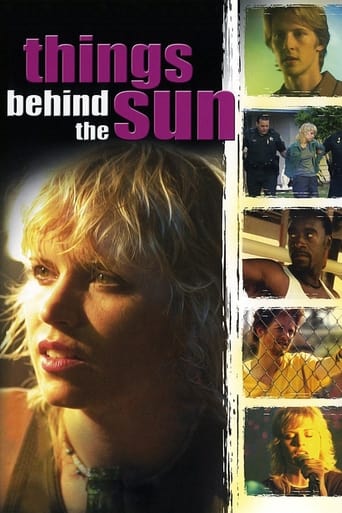

The Milk of Sorrow (2010)
Fausta is suffering from a rare disease called the Milk of Sorrow, which is transmitted through the breast milk of pregnant women who were abused or raped during or soon after pregnancy. While living in constant fear and confusion due to this disease, she must face the sudden death of her mother. She chooses to take drastic measures to not follow in her mother's footsteps.
Watch Trailer
Cast
Similar titles

Reviews
Wow! Such a good movie.
Terrible acting, screenplay and direction.
It's no definitive masterpiece but it's damn close.
This is a must-see and one of the best documentaries - and films - of this year.
La teta asustada is no action-packed thriller by any stretch of the imagination. But it is an emotional documentation of the saddening story of Fausta, an indigenous Peruvian woman who lives with her mother next to her aunt, uncle, and cousins.Throughout the movie, Fausta is subjected to a multitude of hardships, beginning with the death of her mother. The film begins with a somber song sung by Fausta mother that recounts her rape and contraception of Fausta during the time of terrorism in the hillcountry of Peru. Because Fausta's mother lived during this time, it was believed by the people in their village that Fausta was contaminated with the disease "la teta asustada," or "the milk of sorrow." The disease affected those who were nursed by women affected by the horrific events during that often-forgotten time in Peruvian history.While Fausta's believed diagnosis of "la teta asustada" is the cause for a lot discrimination against her, we also see the difference in rich and poor culture when she begins working for wealthy family in the city. Her relationship with the woman for whom she is working is strained and often times uncomfortable, but she finds solace in her relationship with the gardener. A speaker of her native Quechua, the gardener provides a needed sense of home in the bigger city, where she feels very out of place and at many times antagonized. This feeling ultimately culminates in Fausta's boss letting her go on the side of street after they attended a show in Lima where the woman performed one of Fausta's songs. We ultimately see many intersections of culture in Fausta throughout the movie. Almost all of which resulting in some form of criticism or hardship. This aggregation of misjustice is accentuated by the melancholy tone of the film, as well as the overall theme presented.
Fausta's aged mother passes away, singing a song that tells of horrific suffering in the not-so-distant past. That suffering has been passed on to her daughter through, according to local folklore, her mother's breast milk. With a potato inserted in her vagina, Fausta hopes to ward off the ugly indignities inflicted on her mother. Fausta's poverty, both material and spiritual, is thrown into sharp relief when she gets work as a housekeeper at the home of a wealthy and celebrated, but arid musician. The musician draws Fausta's song from her. And so, she begins to sing. This is a slow-burn film that offers startling images at time, and is strongest in its representation of the rituals of courtship, marriage and death. There is a rhythm and intensity to these scenes, a beguiling charm, that is disarming. Less successful are the long takes of Fausta (Magaly Solier) staring off into space when in the throes of her existential plight. The film goes after an imagistic rather than narrative experience and only partly succeeds. A dense film, in fact impenetrable at times, it offers strong symbolism, gritty ethnographic authenticity, but ultimately demands patience that it fails to completely reward, Magaly Solier's intensity failing to compensate for the plodding pace.
I have only to say, that I understand the people they say this film could be boring and slow, and, and, and.BUT, the only thing that the don't know, is the fact that, IF YOUR NOT RELATED WITH QUECHUA Language & THE INDIGUENOUS CULTURE OF PERÚ & SOUTHAMERICA, just LEAVE THIS FILM and please, DON'T GIVE A NEGATIVE REVIEW of a thing you just don't feel and understand.Cause all you don't really know, how sweet and beautiful sounds the Southern-Quechua Language, and how underrated it is in films, and the indigenous culture there too.I think, actually it is the first time, I heard the language in a movie, and the first time I heard it in a song at all. And because I come from Chile, this bring me ties to my roots and original culture, because I really didn't knew, how rich and beautiful it is. Brings me really goose bumps.So, please have a little respect, and If you don't feel it, just leave it, and be neutral. Al least, why do we have to understand or feel every movie in the world?
Claudia Llosa writes a peculiar, but captivating story of a young Peruvian girl living in a constant world of fear on the outskirts of Lima. Fausta is believed to be suffering from a rare disease, "La teta asustada," or the "Milk of Sorrow," which was transmitted from her mother's breast milk after she was raped by terrorists during the time of Sendero Luminoso. Facing her mother's death, Fausta is forced to overcome her fear and work in the Big House of a limeña musician. While both the music and filming are stunning, I feel that the film lacks much action or thick plot. I found it to be more of a journey, one that led Fausta from her fear to a glimpse of her freedom. Furthermore, as a viewer who has lived in Peru, the film was very nostalgic for me and I felt that it portrayed Lima and the "pueblos" with a profound sincerity. If you are looking for a poetic and beautiful journey of a story, this film is exactly that.






